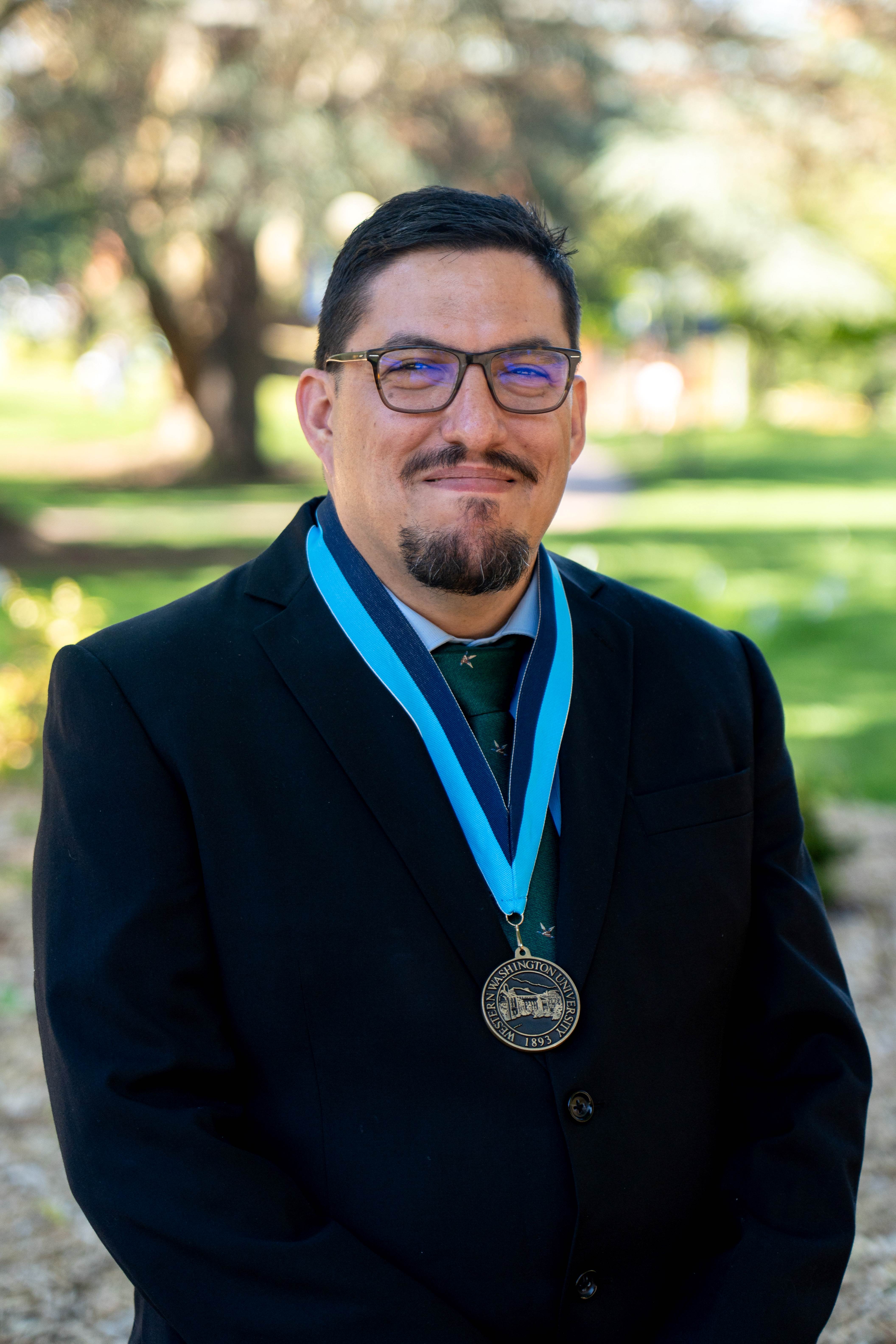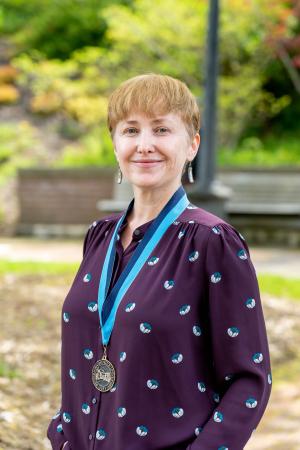Excellence in Teaching Award
The Excellence in Teaching Award goes to an inspirational and transformational faculty member* from one of the following colleges:
- Business and Economics
- Fairhaven College of Interdisciplinary Studies
- Fine and Performing Arts
- The College of the Environment
- Woodring College of Education
*Please Note: Only Assistant Professors, Associate Professors, or Professors are eligible for this award. (Instructors, Lecturers, Senior Instructors are not eligible. Please check the staff directory for faculty titles.)
Selection Criteria
The criteria that will be considered include:
- Inspirational/Transformational and value of learning for career/life decisions/etc.
- Vision, purpose, and intentionality for teaching
- Engagement beyond class, mentoring student (students, other faculty, etc.)
- Innovative pedagogy, continual development
- Overall awesomeness
Award/Recognition
Award Adminstration
Nomination Process
2024

Manuel Montaño - Environmental Sciences
Manuel David Montaño is an associate professor in the Environmental Sciences Department in the College of the Environment. His research and scholarship focus is on the study of anthropogenic and geogenic nanoscale processes in the environment, and the development and application of emerging analytical methods to study these phenomena. He runs an active research program involving undergraduate and graduate researchers and has published in several environmental and analytical chemistry journals.
In the classroom, Manuel draws upon his own experiences as a first-generation student to foster an inclusive and supportive learning environment. His classes range in subjects from toxicology to water quality, emerging contaminants and environmental analysis. He encourages student success through active discussions, student-centered learning practices, and a focus on community. Students’ knowledge is then put into practice in the laboratory where they hone their skills as scientists. Outside the classroom, he takes particular pride in striving to be an effective mentor and advocate for his students, continuing a tradition of strong mentorship he was himself fortunate to receive throughout his career.
Past Awardees
1 awardee(s) for this year
2023 Awardees

Aquila Flower - Environmental Studies
Associate Professor Aquila Flower is a geographer and ecologist whose research focuses on the forest, alpine, and coastal ecosystems of the Salish Sea and Cascadia bioregions. Flower uses methods drawn from geographic information science (GIS), statistics, ecology, and dendrochronology to explore long-term patterns of environmental change. She is the author of numerous peer-reviewed publications as well as the fully open-access Salish Sea Atlas.
Flower teaches geography, GIS, climate science, and biogeography classes. She is the program lead and faculty advisor for WWU’s GIS certificate, GIS minor, and climate change minor. As a teacher, she is deeply committed to her students’ success both in the classroom and in their future careers as environmental professionals. She is fascinated by creative pedagogical approaches and uses a combination of alternative grading models, active learning strategies, incremental knowledge acquisition, and a range of technological tools to create an engaging, interactive, and empathetic classroom culture that fosters curiosity and critical thinking.
